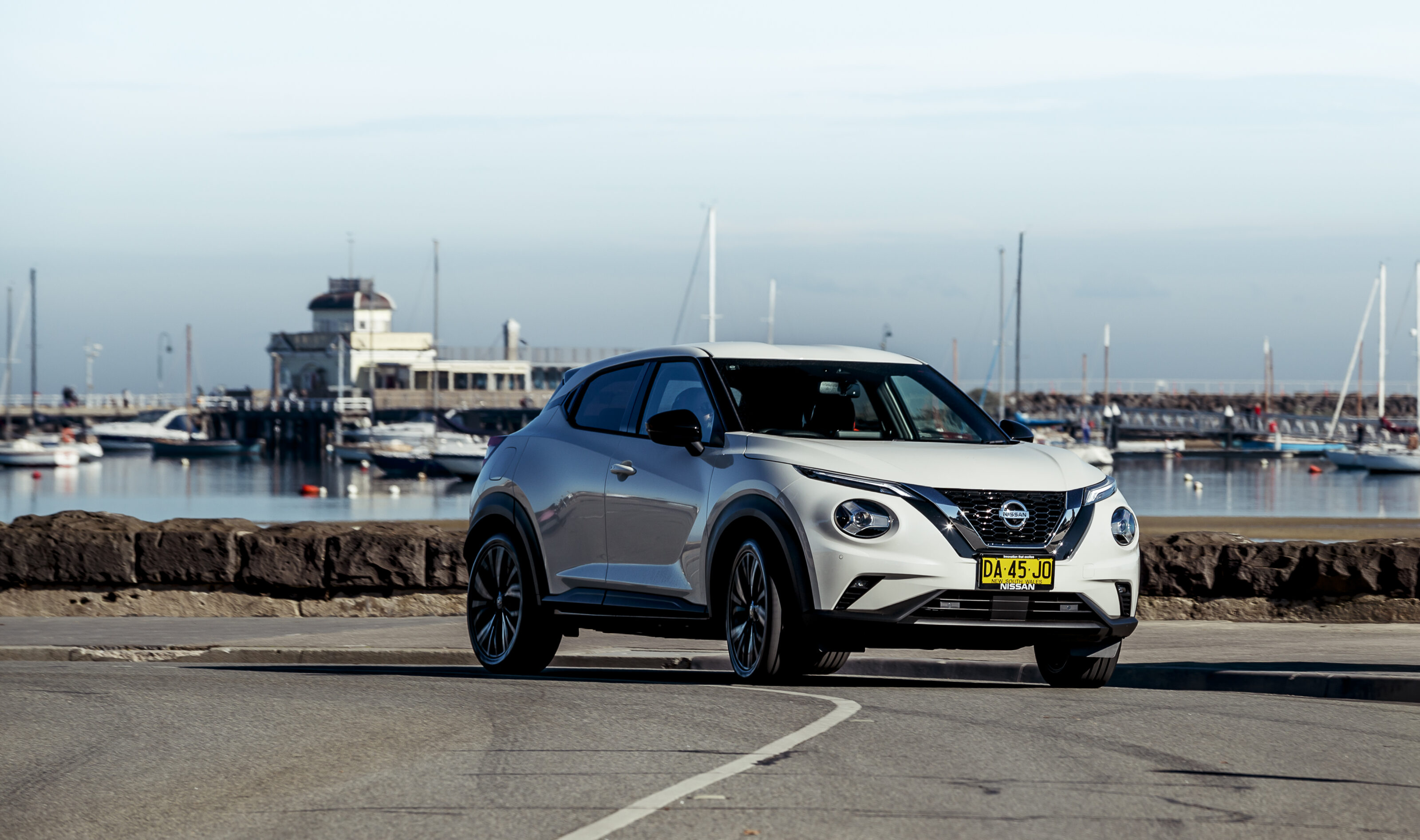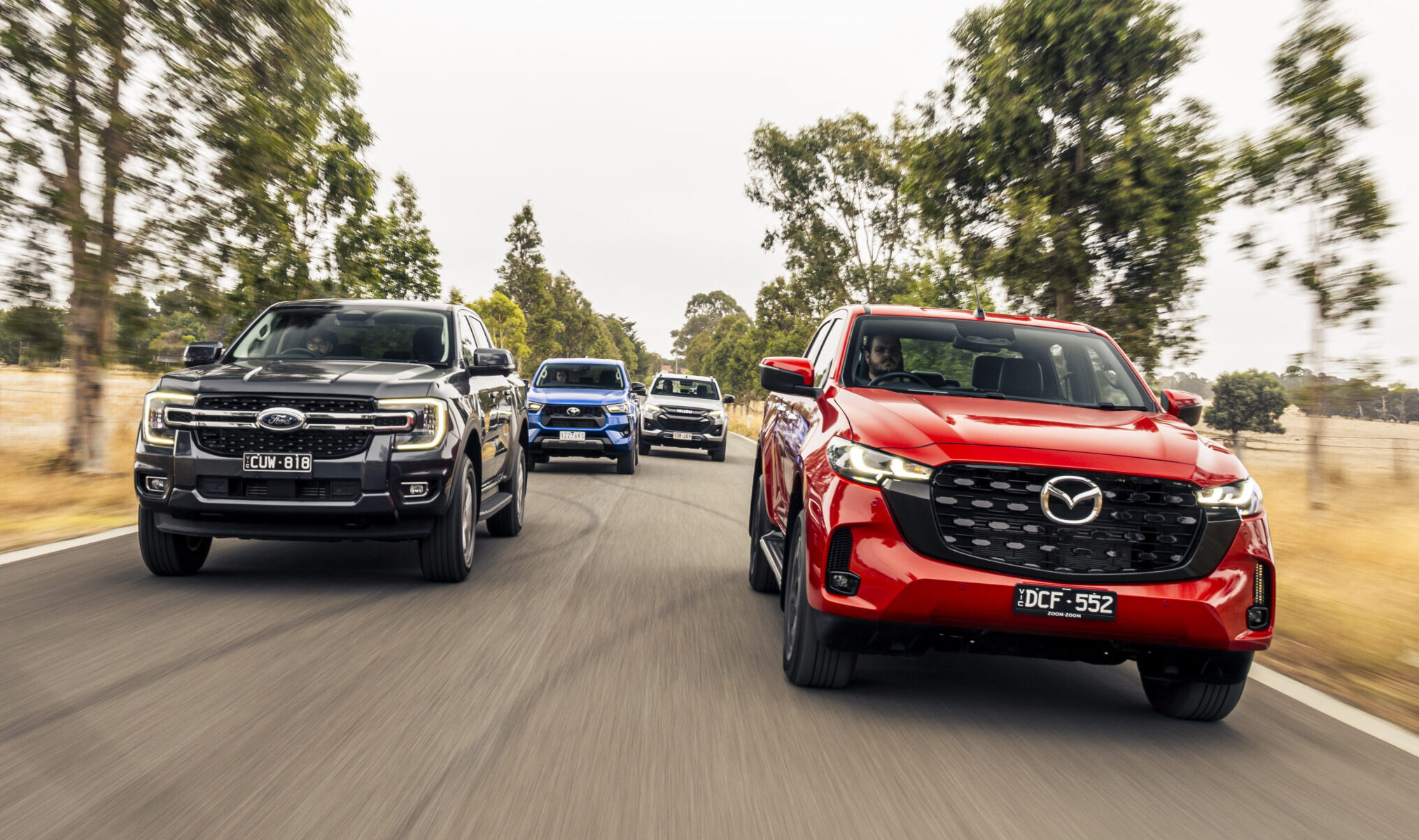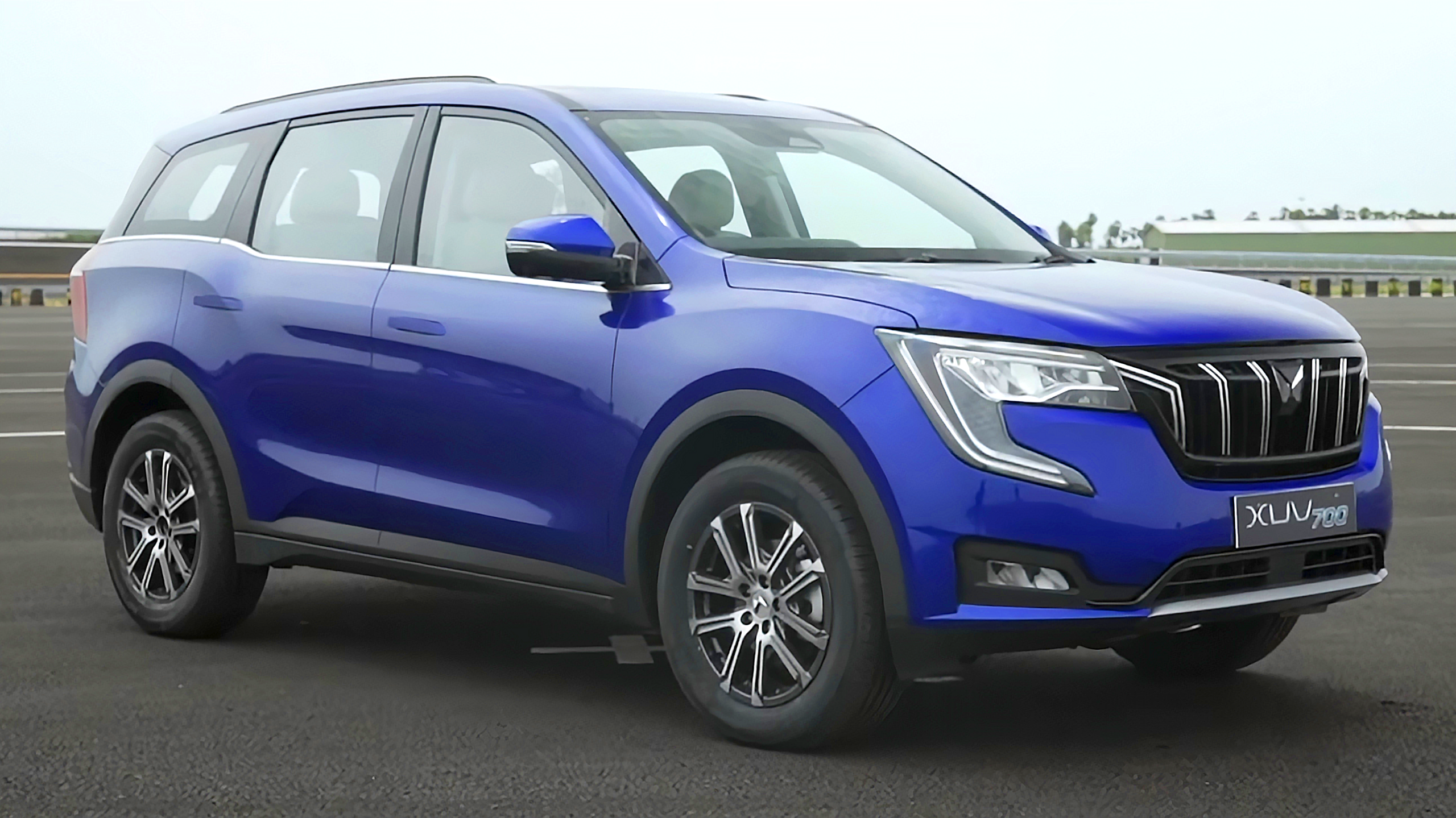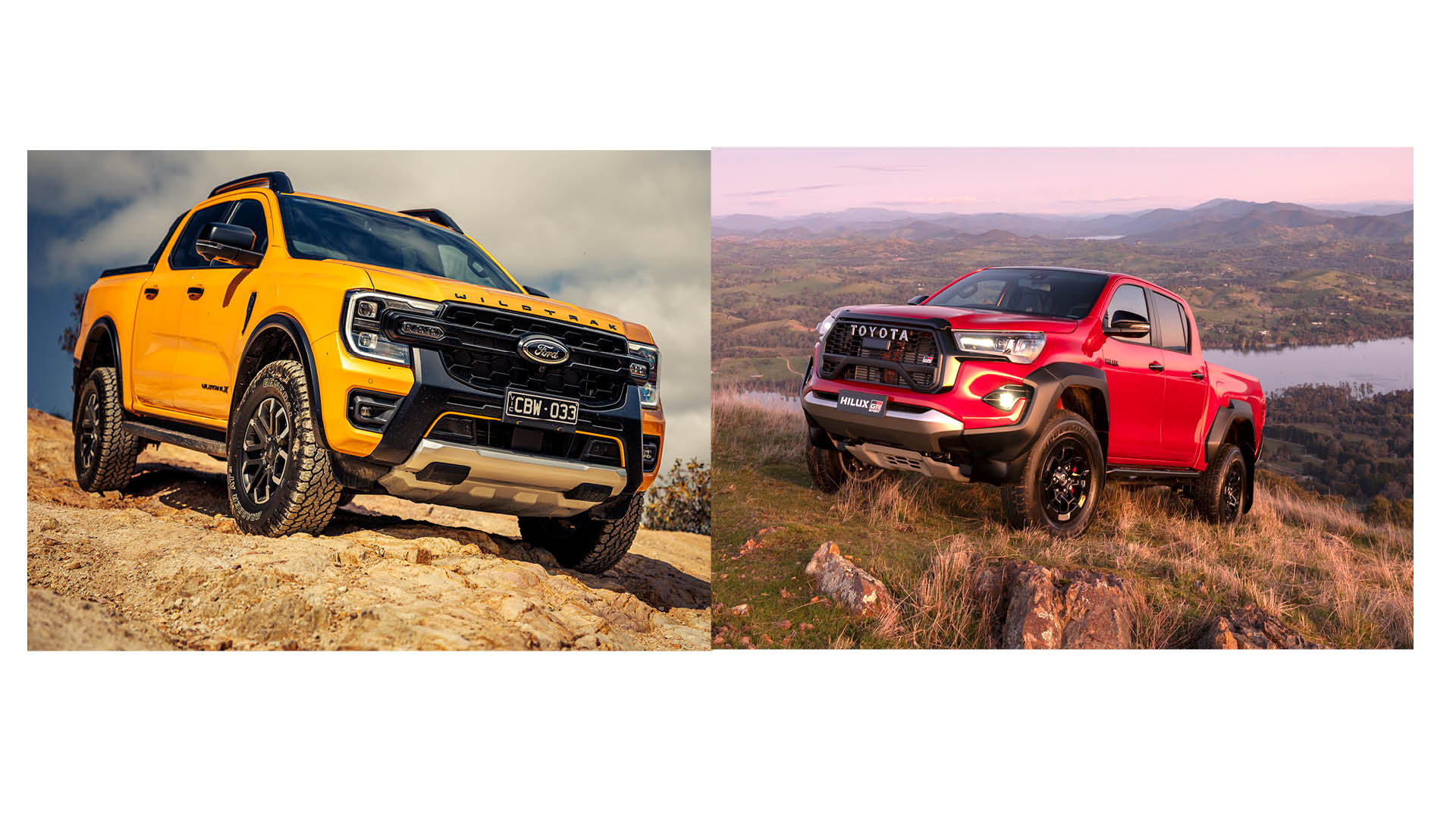Score breakdown
Things we like
- Equipment levels
- Interior fit and finish
- Bold looks
- Fun handling
- Big boot
Not so much
- Hard ride
- Sharp-edged parcel shelf
- Poor rearward vision
One of the original crossovers, the boldly drawn Nissan Juke has been hugely successful in overseas markets, particularly in the UK where it is manufactured.
But the first generation didn’t quite reach those heights in Australia compared to relatively conservative-looking rivals such as the Mazda CX-3 and Honda HR-V. This was especially the case in recent years when it lacked the latest safety and infotainment features that light-SUV buyers desired.
Enter this second-generation Juke that’s packed with new tech but dials back the original’s sense of quirkiness, which helped set it apart from the ever-growing crossover pack that also includes the Ford Puma, Toyota Yaris Cross and Hyundai Kona.
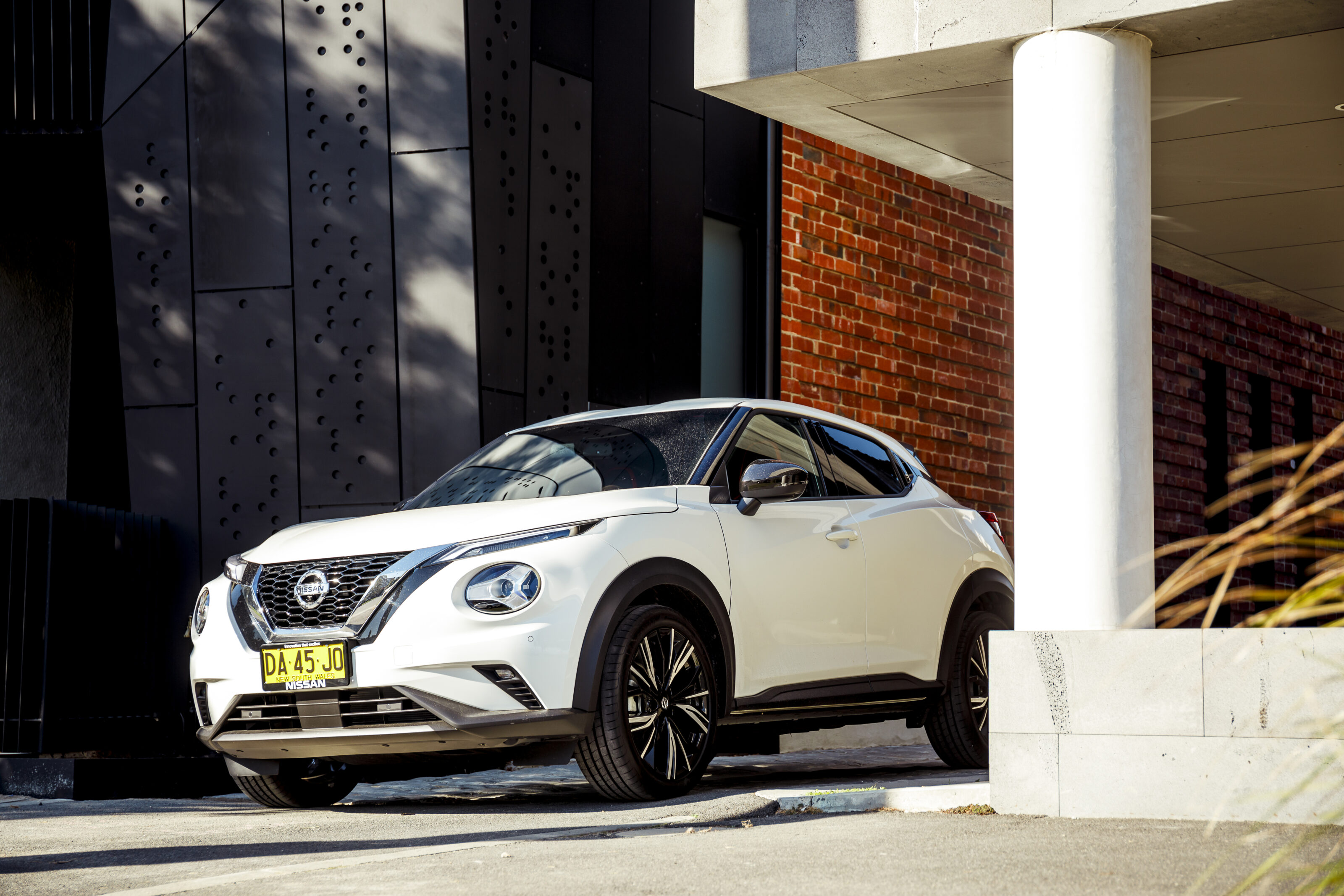
This is the Ti, which tops the Juke range that also includes the entry-level ST that retails for $27,990 before on-roads, the ST+ ($30,740), STL ($33,940) and STL+ ($35,140).
Our test vehicle is a Juke Ti ‘Energy Orange’ that has the same $36,490 sticker as a standard Ti but swaps the black Alacantara trim with orange and black contrasting leather-accented upholstery.
All Juke variants are powered by a punchy 84kW/180Nm 1.0-litre three-cylinder turbocharged petrol engine with a seven-speed dual-clutch auto driving the front wheels.
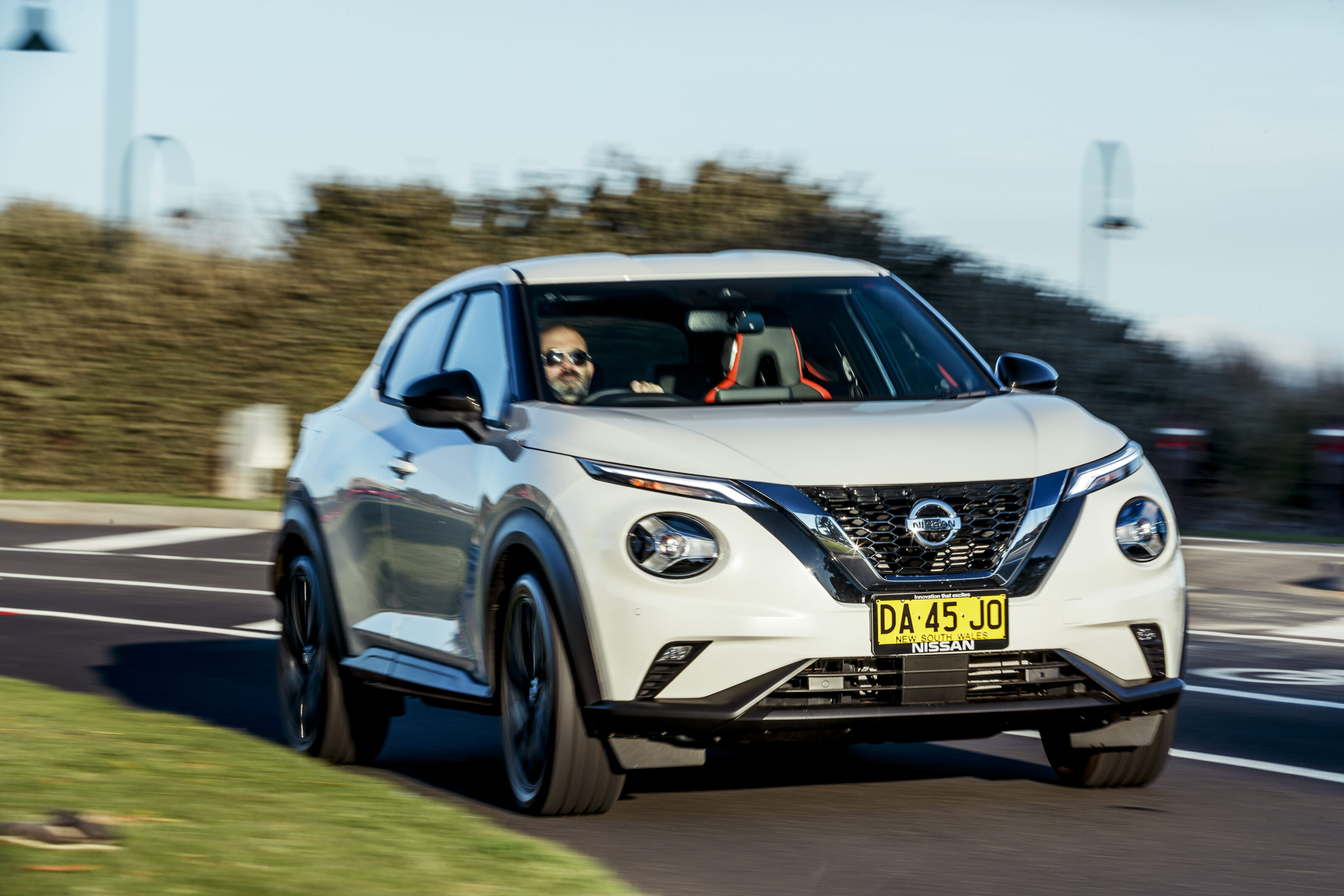
“Our test vehicle is a Juke Ti ‘Energy Orange’ with orange and black contrasting leather-accented upholstery
What is the Nissan Juke Ti like to live with?
The contrasting orange and black trim and the throaty engine note when you press the start button gives the Juke a kind of audacious character, more like you get with some feisty hatchbacks rather than small SUVs.
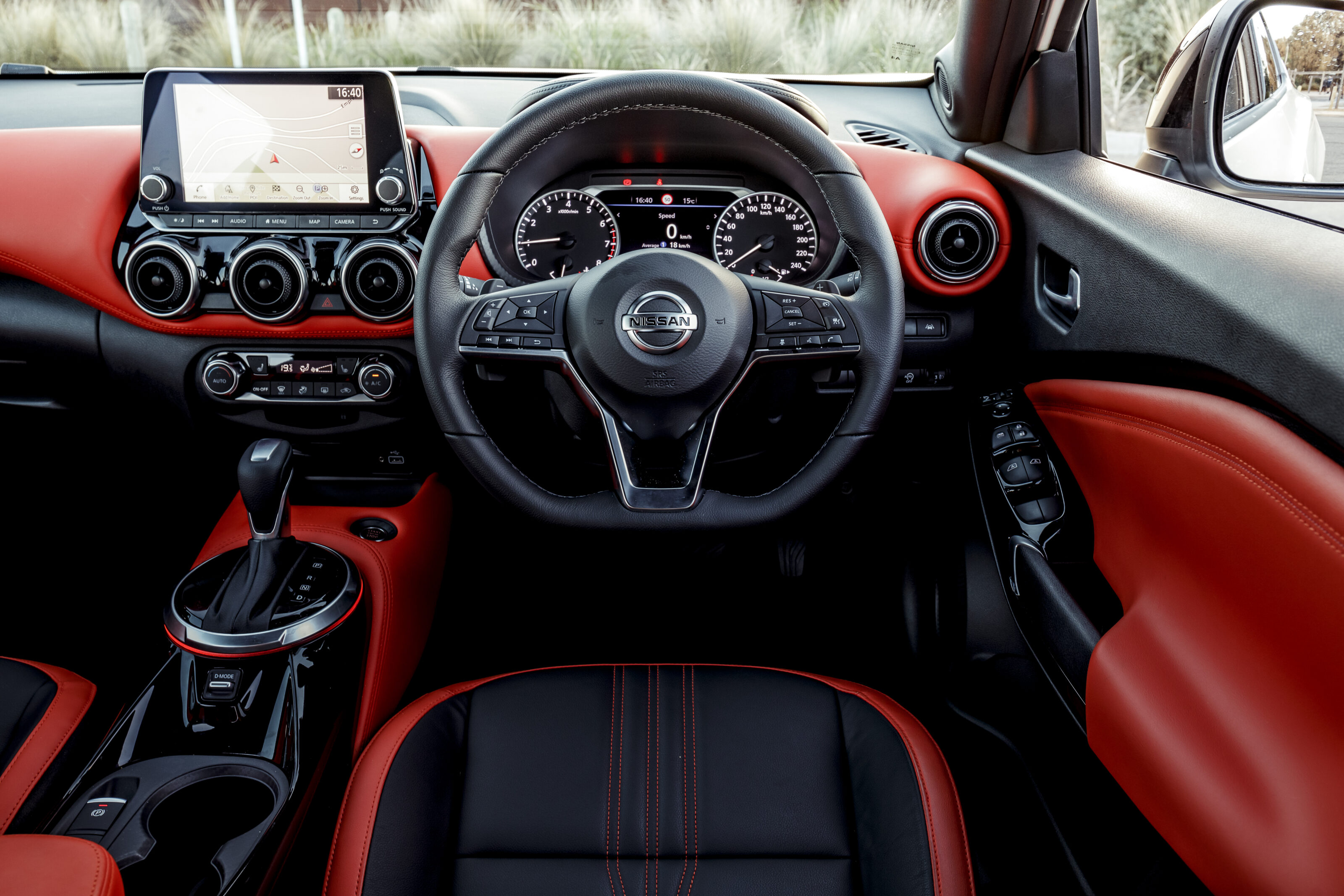
That said, the top-spec Ti is much better equipped, with its features list containing:
| An 8.0-inch touchscreen |
| Apple CarPlay/Android Auto |
| Eight-speaker BOSE premium audio |
| Digital Radio (DAB+) |
| Satellite navigation |
| Surround-view parking monitor |
| Front and rear parking sensors |
| Leather-accented steering wheel |
| Paddle shifters |
| Heated front seats |
| Climate control air-conditioning |
| Smart keyless entry/start |
| Power folding mirrors |
| Rain-sensing windscreen wipers |
| Auto-dimming rearview mirror |
| Automatic LED headlights |
| LED daytime running lights (DRLs) |
| LED fog-lights |
| 19-inch alloy wheels |
| Advanced driver assistance including autonomous emergency braking, adaptive cruise control and blind-spot monitoring with rear cross-traffic alert (see below for more safety features) |
Climb into the driver’s seat and the Juke Ti feels sporty, with well-bolstered sports seats that provide excellent back, hip and under-thigh support. There are no powered settings, but because they feel like they’ve been moulded around you, only the height and reach adjustments are required.
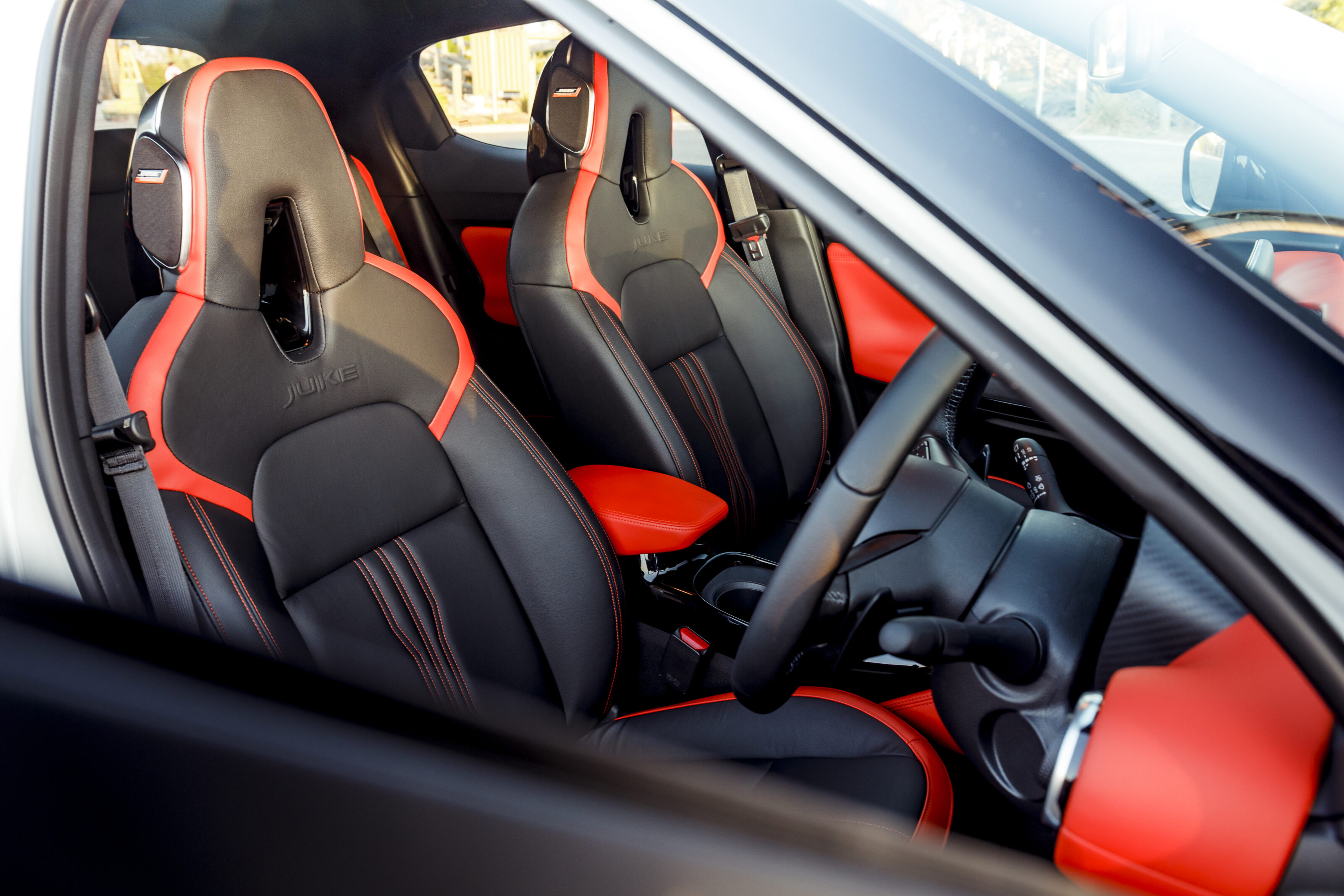
The D-shaped sports steering feels good and the switches for controlling things like the phone, audio and cruise control are well laid out.
Padded surfaces abound, including on the doors, dashboard and the centre console.
Interior storage is limited, with the centre console having a small tub and a spot to place and plug in your phone. The door bins are reasonably generous, though.
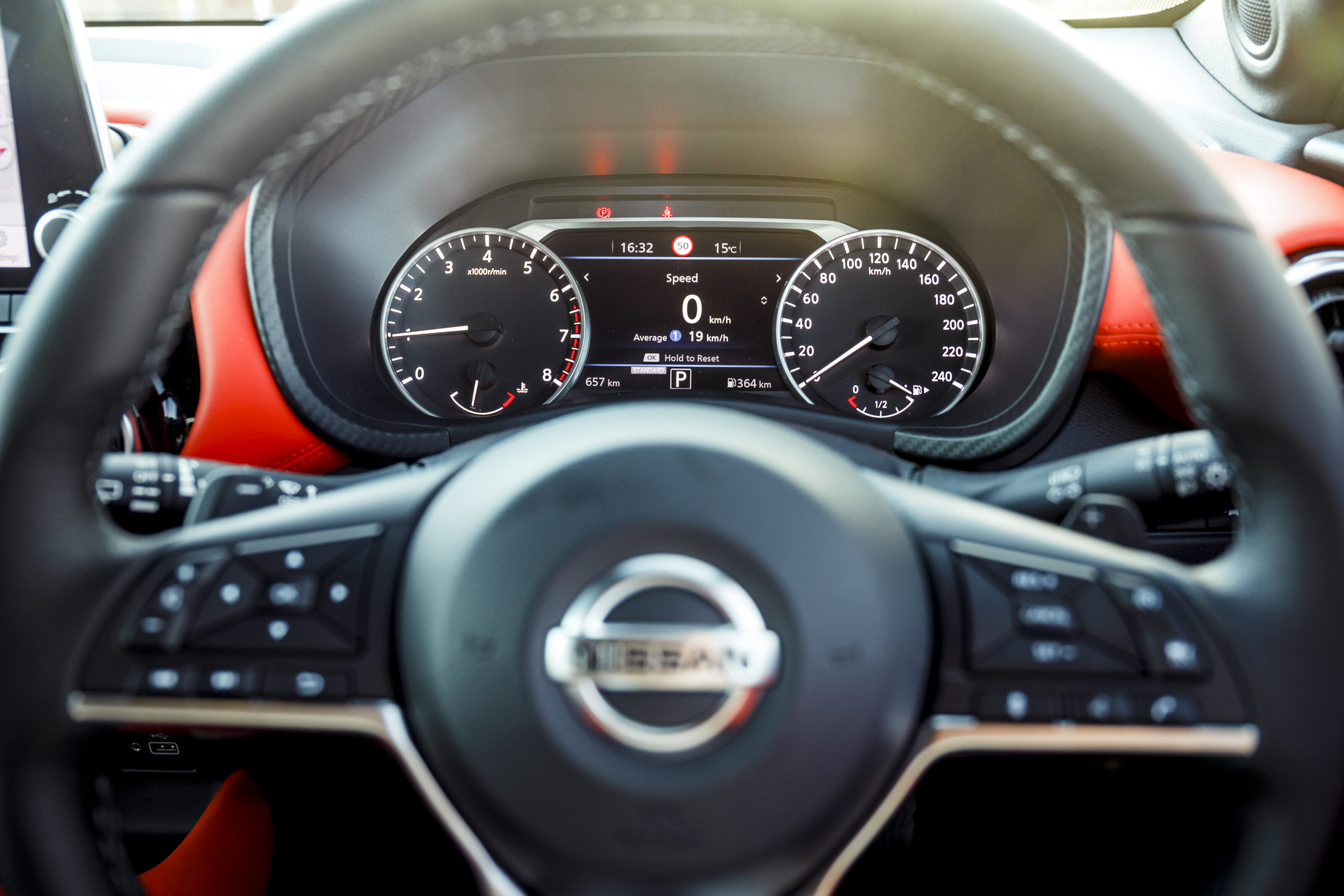
The 8.0-inch infotainment screen is big enough in this cosy cockpit and while it’s good to see Nissan has embraced Apple CarPlay and Android Auto smartphone mirroring, its own infotainment interface still seems a little dated and isn’t as intuitive as those found in rivals such as the Hyundai Kona and Mazda CX-3.
Speakers embedded in the headrest are perfectly placed for surround sound as part of the Bose premium audio system, which sounds great.
The back seats provide adequate legroom for a light SUV but the coupe-style roofline, which looks great from the outside particularly with the hidden rear door handles, does limit rear headroom. It also results in narrow rear windows that restrict side vision for passengers, who also don’t get too much of a view out front.
Although the rear-seat backrests are comfortable, the bench is quite narrow, meaning little under-thigh support for taller people. There is a seatbelt in the middle position but you’d be hard-pressed to seat three people of any size.
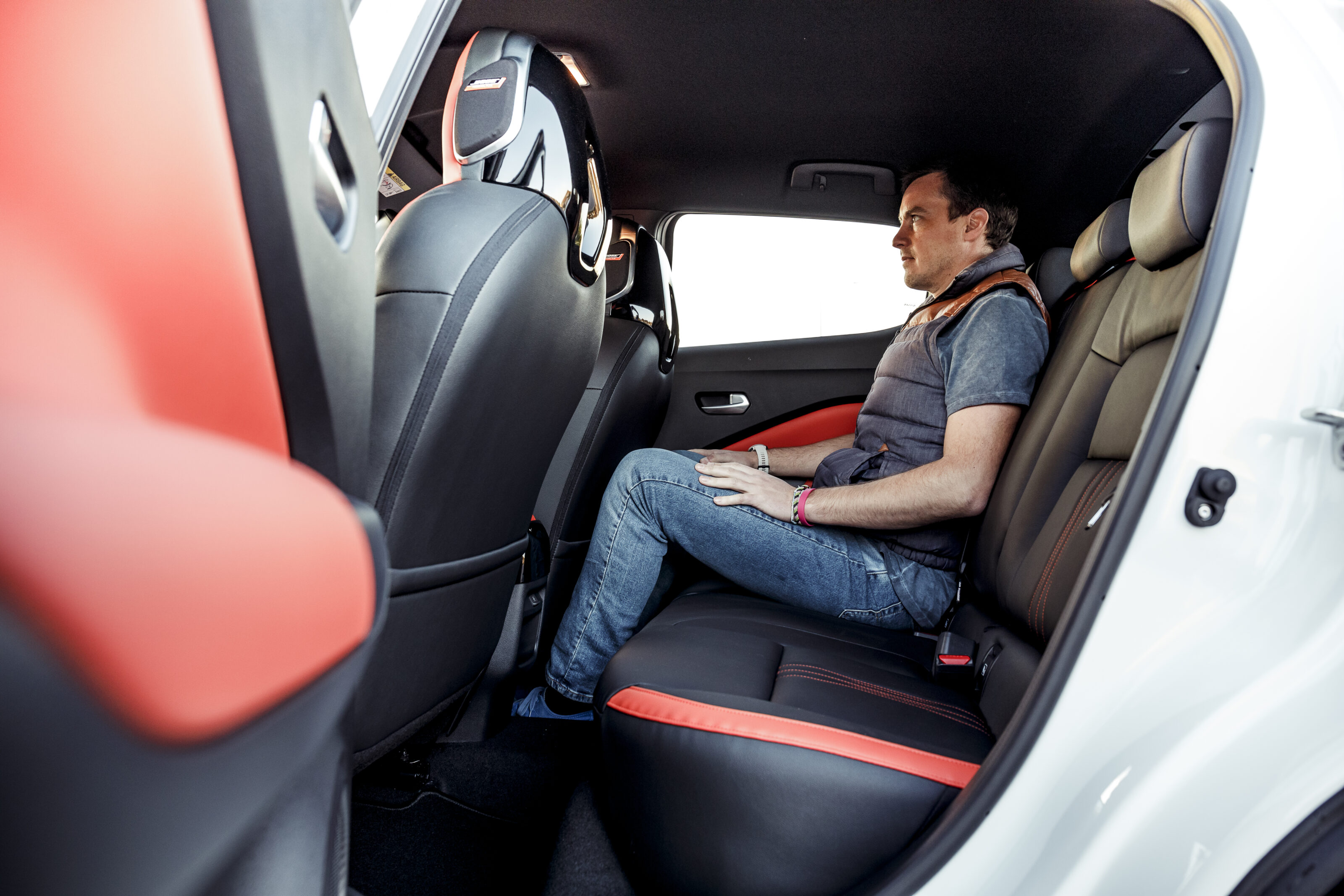
There is one USB socket for rear-seat passengers, but no separate air vents.
If you want to add child seats, there are ISOFIX anchors and tethers in the outboard seats and an additional tether in the centre.
The 60:40 split seats open to a deep boot space that holds up to 422 litres, which is 68 litres more than the previous model and 158 litres more than the CX-3. There is a space-saver spare wheel under the boot floor.
Folding the rear seats down increases capacity to 1305 litres and if you need to carry more there is a handy 1250kg braked towing capacity.
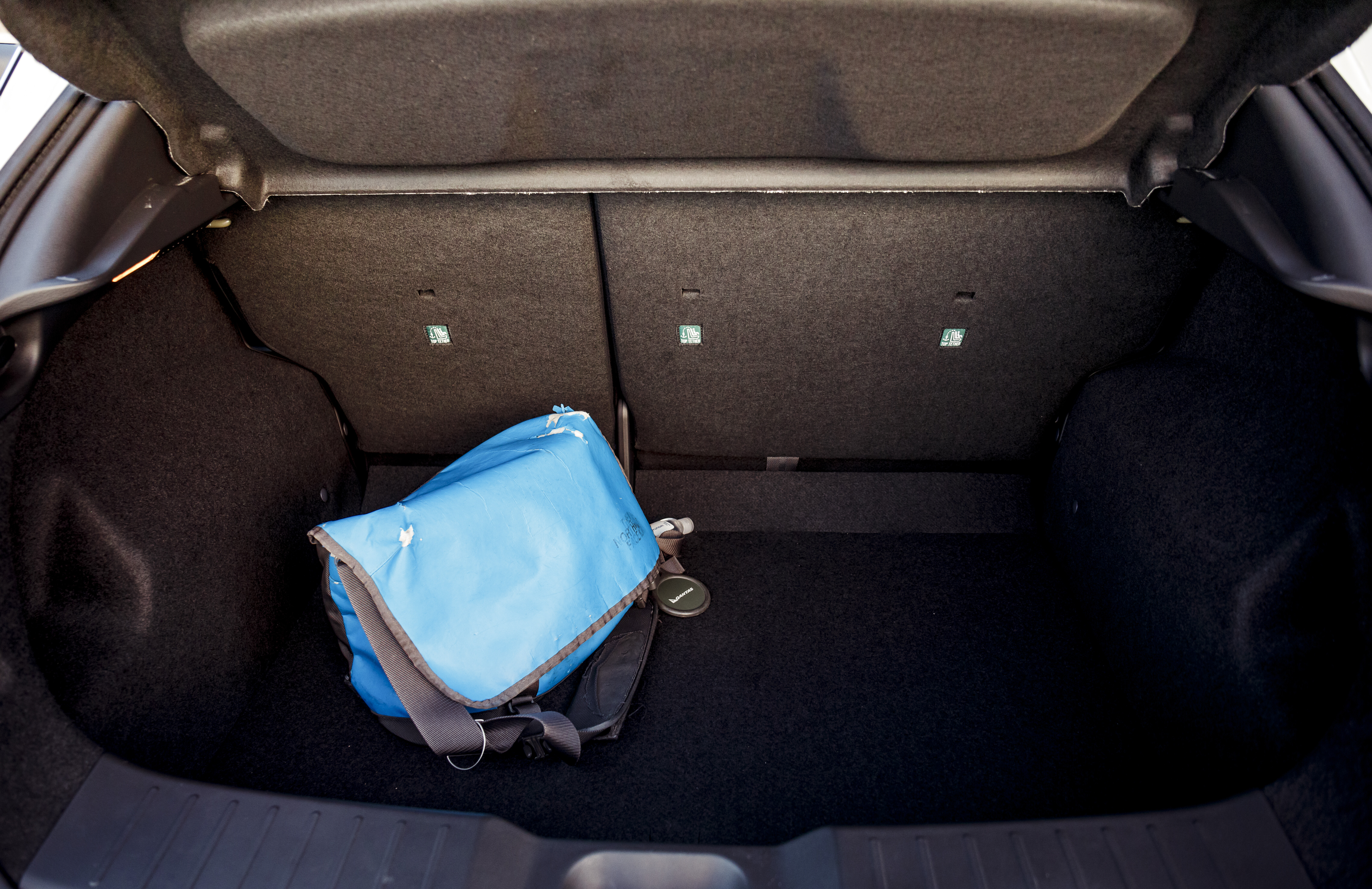
One thing worth mentioning is that the plastic parcel shelf that rises with the tailgate has a very rough edge (in our review car at least) that can give you a nasty scratch on the face if you’re not careful.
The Juke’s 1.0-litre three-cylinder turbocharged engine has an official combined fuel consumption of just 5.8L/100km and service intervals are every 12 months or 20,000km.
The Nissan Juke is covered by a five-year, unlimited-kilometre warranty.
What is the Nissan Juke Ti like to drive?
The Juke’s 84kW/180Nm 1.0-litre turbo engine provides a fair amount of push off the line. But while initial acceleration is brisk, it soon peters out and getting from rest to 100km/h takes more than 11 seconds. However, there is ample power for driving around town.
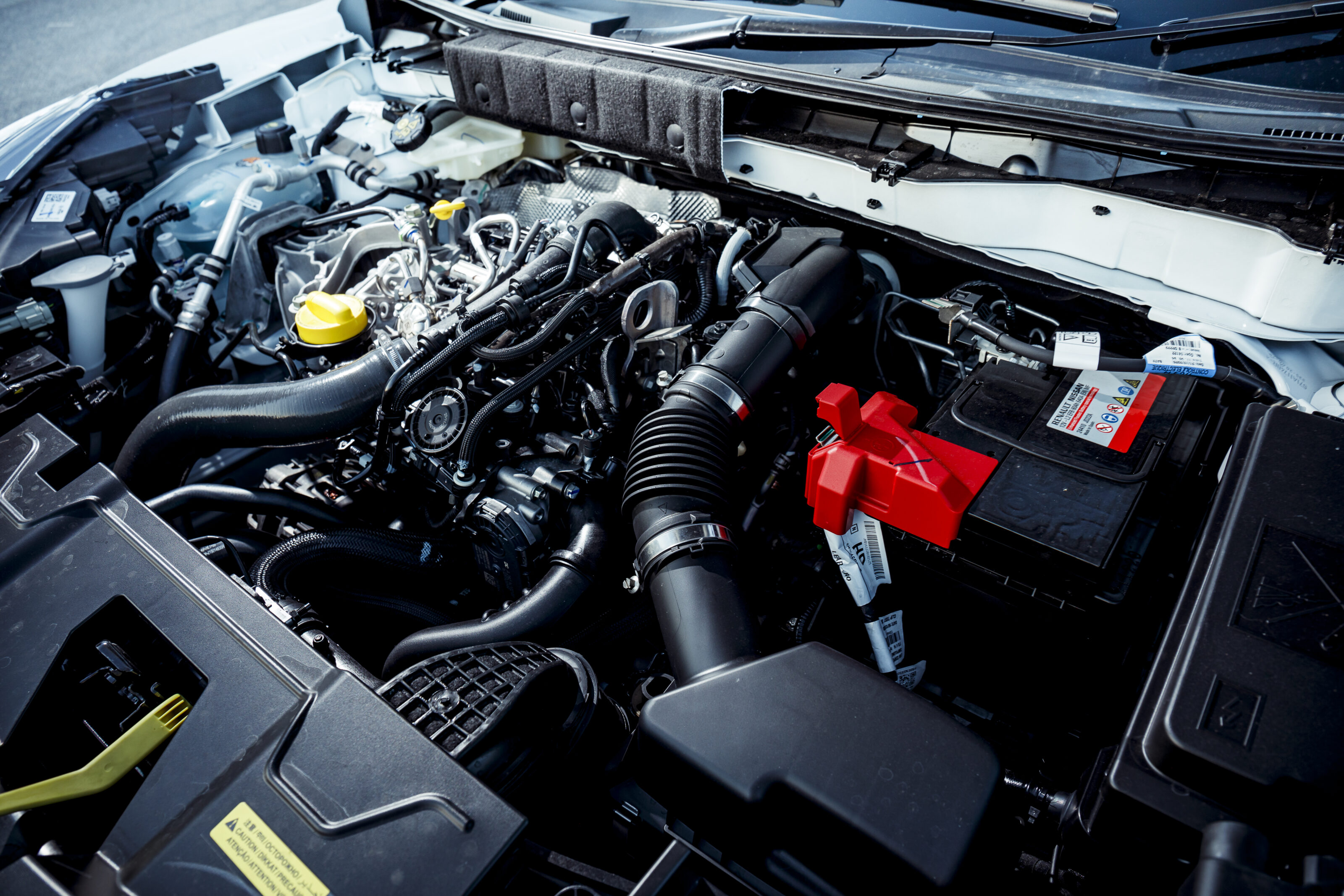
If you enjoy spirited driving, Sport mode keeps the revs up so you’re closer to the peak power range and there are paddle shifters on the steering wheel for more manual control of the dual-clutch transmission.
The chassis provides a firm but comfortable ride with great body control through bends, which makes it fun to drive.
However, the ride can feel a little jarring through the Ti’s bigger 19-inch wheels that are shod with low profile P225/45 Hankook tyres, especially over speed humps.
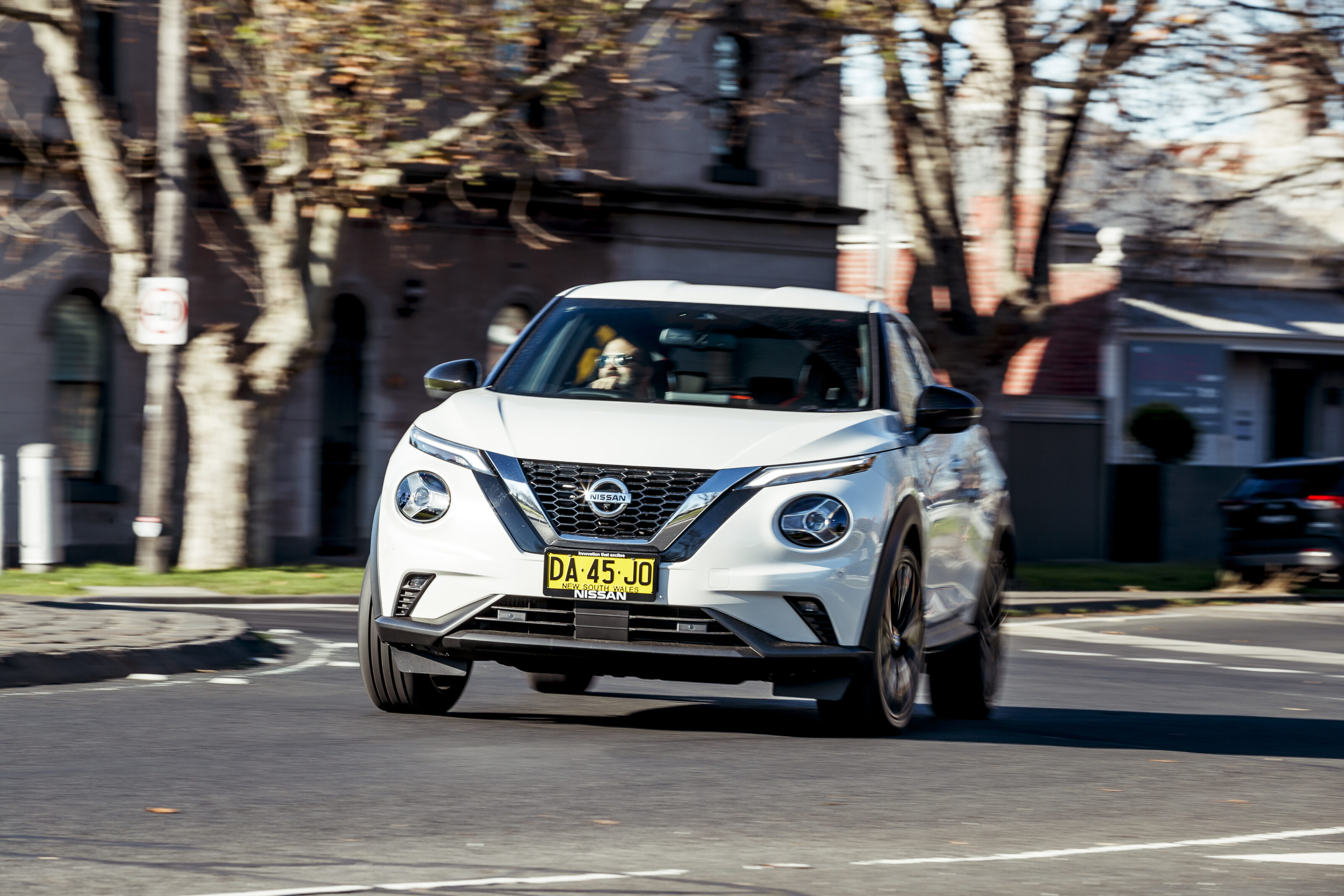
Because of its couple-like profile and chunky C-pillar, vision through the rear side windows is quite limited, which can make things a little awkward if you approach an intersection at an angle or are merging onto a freeway.
All in all, the Juke is quite fun to drive and feels more like a hatchback than an SUV.
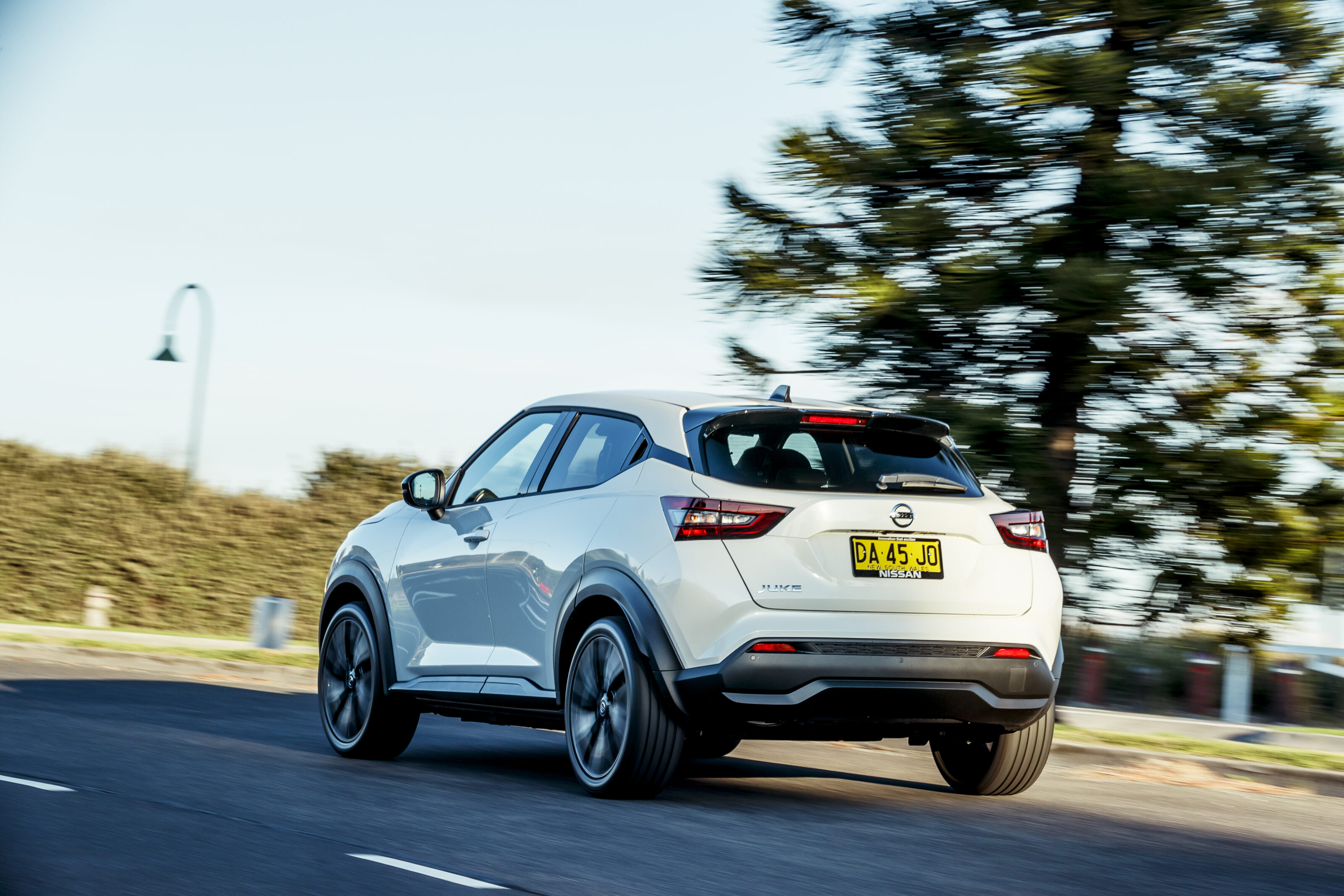
What is safety like in the Nissan Juke Ti?
The Juke is one of the better-equipped light SUVs when it comes to safety, each variant packing a broad range of active safety and advanced driver assistance features such as autonomous emergency braking with pedestrian and cyclist detection, traffic sign recognition, rear cross-traffic alert, blind-spot warning, lane departure warning and lane-keeping assist, which Nissan calls Intelligent Lane Intervention.
The Ti also has front parking sensors, a 360-degree surround camera system, ‘Moving Object Detection’ and adaptive cruise control.
Occupant protection includes six airbags, including driver and front passenger forward and side airbags, and front and rear curtains.
The Australasian New Car Assessment Program (ANCAP) rated the Juke’s safety at a maximum five stars in June 2020.
The verdict
The second-generation Juke retains some of the original model’s quirkiness and fun-driving nature albeit in a more refined and modern package, particularly with all the Ti-spec trappings.
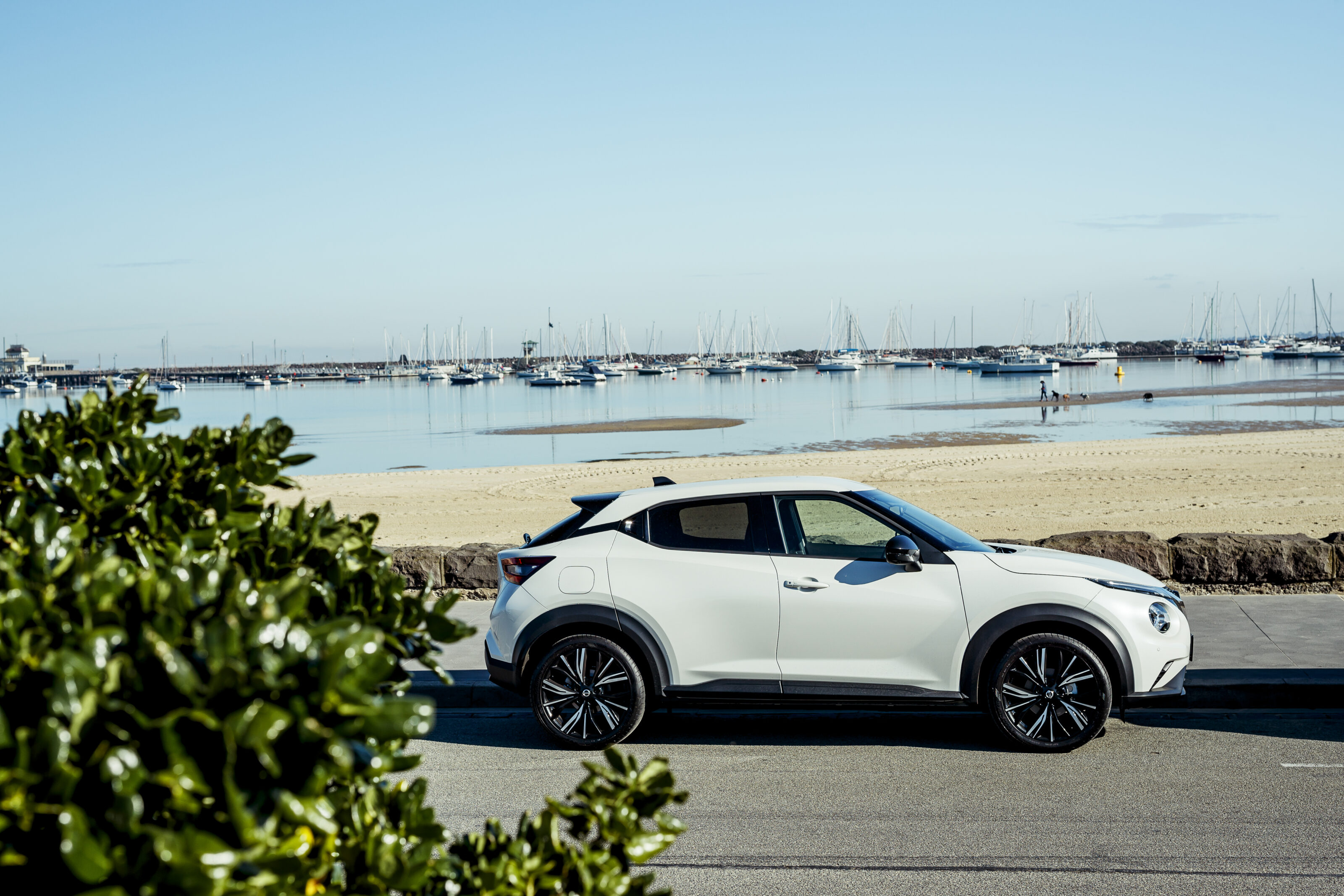
Its boot space makes it a reasonably practical too, but you may want to think twice about choosing this if you’ll be carrying people around often, particularly children, as hard riding low-profile tyres can make things a little uncomfortable.
But, if you expect the rear seats to only host the occasional bum, the Juke is a great little all-rounder that will quickly grow on you.
Nissan Juke Ti specifications
| Body | 5-door, 5-seat SUV |
| Drive | FWD |
| Engine | 999cc 3cyl, 12v, turbo petrol |
| Transmission | 7-speed DCT |
| Power | 84kW @ 5250rpm |
| Torque | 180Nm @ 2400rpm |
| Power to weight ratio | 68kW/tonne |
| 0-100km/h | 11.8sec (claimed) |
| Fuel consumption | 5.8L/100km (combined) |
| Weight | 1274kg |
| Suspension | MacPherson strut front / twin-beam rear |
| L/W/H | 4210/1800/1595mm |
| Wheelbase | 2636mm |
| Brakes | Front ventilated discs/solid rear discs |
| Tyres | P225/45 R19 Hankook Ventus S1evo3 |
| Wheels | 19 x 7.5 alloy |
| Price | $36,490 |
Score breakdown
Things we like
- Equipment levels
- Interior fit and finish
- Bold looks
- Fun handling
- Big boot
Not so much
- Hard ride
- Sharp-edged parcel shelf
- Poor rearward vision
We recommend
-
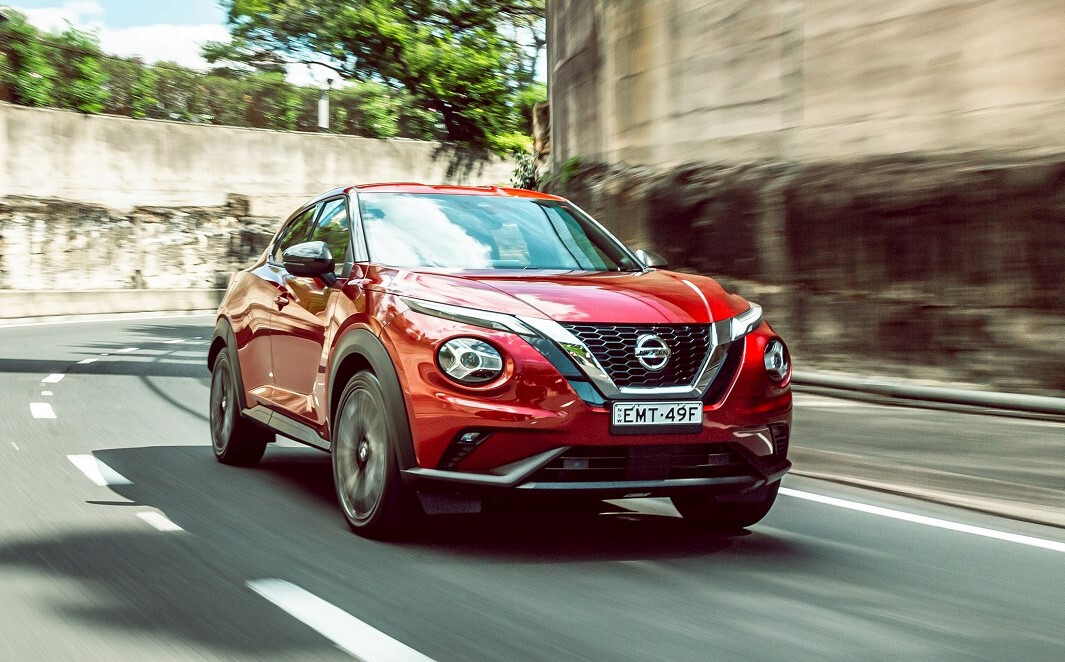 News
News2021 Nissan Juke gets new ST-L+ trim and Ti colour upgrade
The ST-L+ gives the Juke better speakers and white leather-accented interior features
-
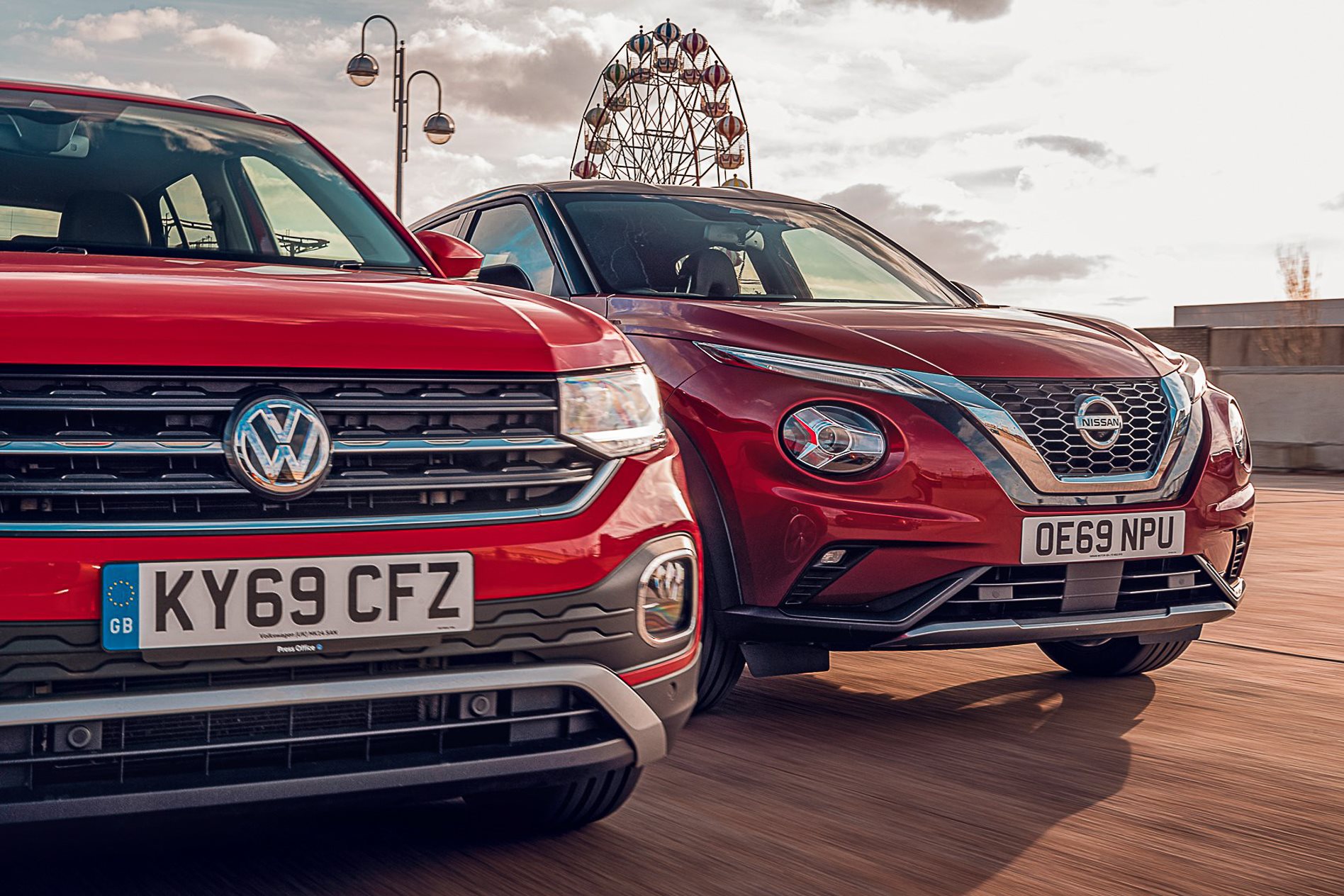 Reviews
Reviews2020 Ford Puma vs Nissan Juke vs VW T-Cross compared
We test three incoming compact SUVs en route to Australia; the Nissan Juke, Volkswagen T-Cross and Ford Puma
-
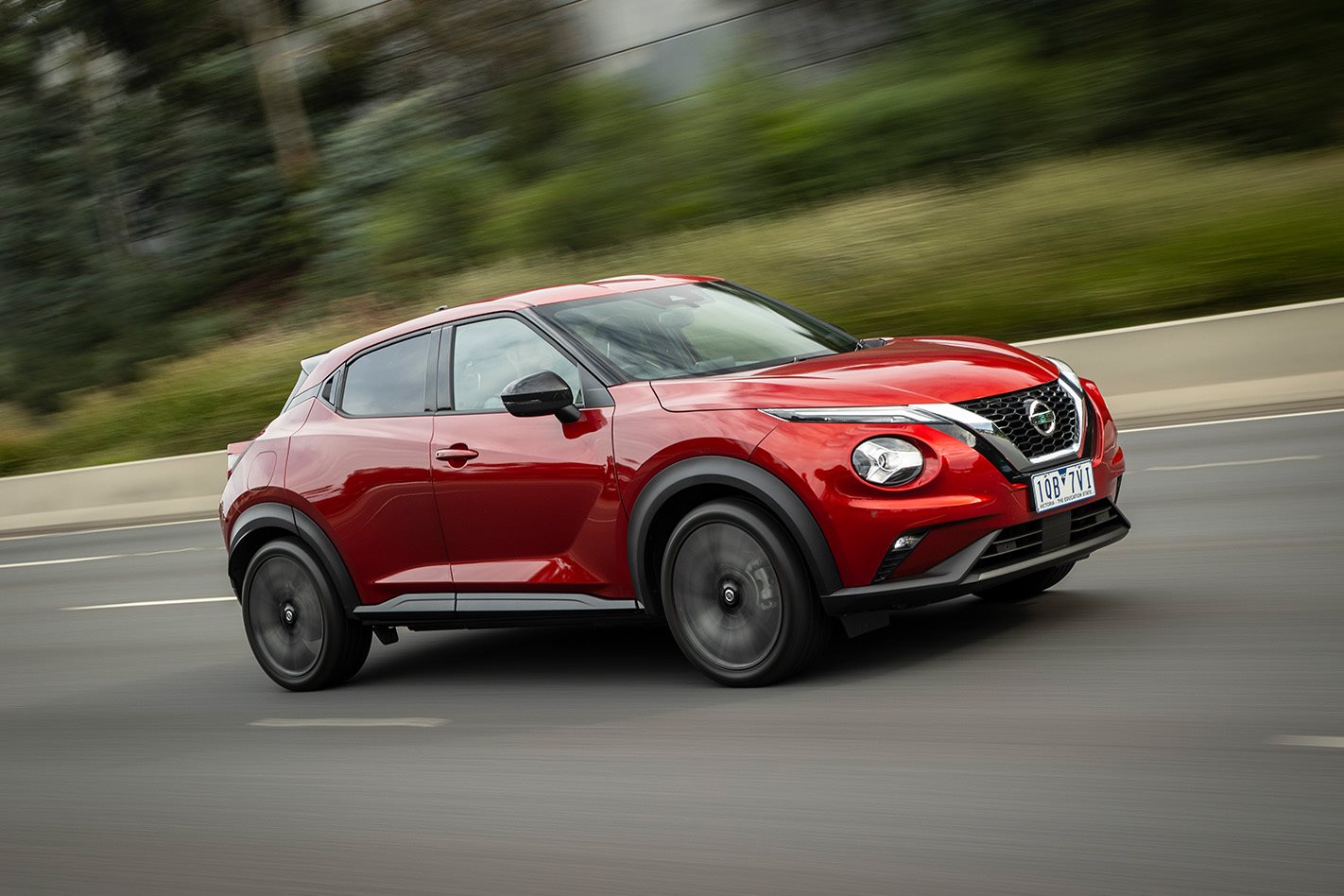 Reviews
Reviews2020 Nissan Juke review: Australian launch
Nissan’s baby SUV has grown up and is way better as a result


